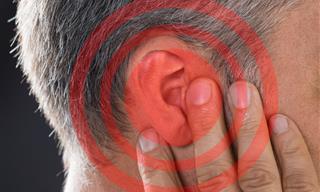1. Sleep Position:
Adjusting your sleep position can help alleviate ear pain, especially during an ear infection. Certain positions can assist in better drainage and reduce pressure on the affected ear. So...
- Sleep with the affected ear raised, not pressed against the pillow.
- Use extra pillows to keep your head elevated, facilitating better drainage of the ear.
2. To alleviate an earache quickly, natural remedies or over-the-counter treatments can be effective, though they may not provide instant relief. Medical attention is advisable for determining the underlying cause.
3. Should I consult a doctor?
It's generally recommended to consult a doctor for an earache, especially if the pain is severe or accompanied by a fever. Mild ear pain might resolve on its own, but if it persists or worsens, seeking medical advice is important.
4. How long does an ear infection last?
The duration of an earache varies. While many ear infections improve within a week or two, the timeframe can differ based on the cause. Persistent pain beyond a few days warrants a doctor's appointment.
Natural remedies for ear infections:
1. Salt
Using salt is one of the most accessible treatments for ear infections, because we all have salt at home. The reason for the effectiveness of this treatment lies in the salt's natural ability to absorb liquids, which dries the inflamed area and kills the layer of bacteria that cause the infection.

How to use it:
- Heat a cup of salt in the microwave.
- Transfer the salt to a cloth napkin or thin and clean sock, and let it cool until it reaches a comfortable temperature.
- When the salt is safe for skin contact, lie on the side of the healthy ear and place the sock or napkin over the inflamed ear for 5-10 minutes.
- The heat will soften and draw out the contamination, and the salt will absorb the fluids.
2. Garlic
Garlic has medicinal properties that have been known to science for centuries, and it contains a compound called alcin known for its anti-bacterial, anti-viral and anti-inflammatory properties. There are two ways to use garlic to treat an ear infection, and both are considered very effective.

How to use it:
- Fry 2 cloves of garlic with 2 tablespoons of sesame oil until the garlic turns black.
- Filter the oil and when it is at a temperature that is not too hot, drip 2-4 drops into the ear, as you would with ear drops.
Alternatively:
- Cook 2-3 fresh garlic cloves in water for about 5 minutes
- Take them out of the water, mash them to a pulp and add a little salt.
- When the paste is at a comfortable temperature, put the mixture in a napkin or sock, lie on the side of the healthy ear and place the napkin or sock on the inflamed ear for 5-10 minutes.
3. Basil
In recent years, several studies have been published that tested the healing abilities of basil oil, and it was found to have antiviral, antimicrobial and even anti-cancer abilities. You can take advantage of these benefits in a variety of ways, which also include treating ear infections.

How to use it:
- Squeeze about 5 large fresh basil leaves and apply the juice around the ear, but avoid dripping the liquid into the ear.
- Alternatively, you can mix a few drops of basil oil with the same amount of coconut oil, absorb the mixture with a cotton ball and gently wipe the inside of the ear twice a day.
4. Apple cider vinegar
In the case where the ear infection was caused by a fungal infection, using apple cider vinegar would be a particularly effective treatment. The apple cider vinegar is anti-fungal, anti-bacterial, anti-cancer and has disinfectant properties, which can destroy bacteria and other pollutants very efficiently.
How to use it:
- Mix an equal amount of water and apple cider vinegar and soak a cotton ball in the mixture.
- Plug the ear with the cotton wool for 5 minutes.
- Take out the cotton wool and lie with the inflamed ear facing down to let it drain naturally.
- To dry the ear, use a hair dryer (at a safe distance).
5. Tea tree oil
The tea tree oil has antibacterial and antiseptic properties, which allow it to disinfect and kill the plaque of bacteria that causes pain during the inflammation, and even heal it.

How to use it:
- Mix 3 drops of tea tree oil with 2 tablespoons of olive oil and a tablespoon of apple cider vinegar, and heat the mixture a little.
- Lie on the side of the healthy ear, pour a little of the mixture into the inflamed ear and leave it inside for 5 minutes.
- Turn over and let the liquid drain completely.
The treatment can be repeated 2-3 times a day, for 1-2 days.
6. Onion
Onions are not only an excellent addition to salad and stews, but also a powerful ally in the fight against inflammation. Onions contain large amounts of sulfur-based chemicals, known for their antibacterial properties.
 Go to BabaMail
Go to BabaMail


































